Heading north, Shenyang shines brighter! On October 8, the tenth stop of the ‘Beautiful Life, Literary China’ City Tour Event arrived in Shenyang and was successfully held at the academic lecture hall of Liaoning University’s (LNU) Puhe campus. Themed as the ‘Forum on the Underlying Logic of High-Quality Development of Enterprises’, the event aimed to further promote nationwide reading, actively serving the common vision of a scholarly China and building a better life by promoting the construction of scholarly enterprises and scholarly cities.
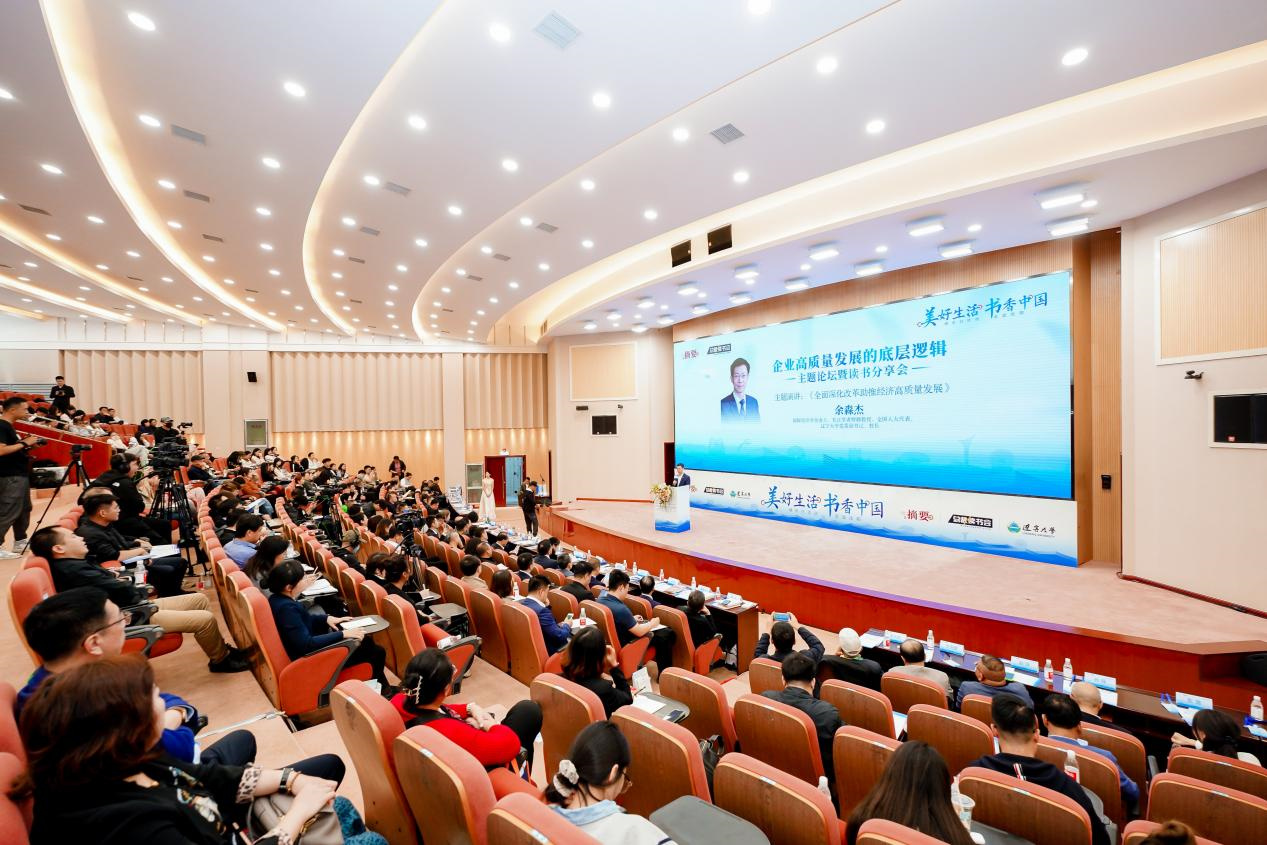
During the keynote speech session, Professor Yu Miaojie, a Fellow of the International Economic Association, Deputy Secretary of the CPC Committee and President of Liaoning University, Wang Haishan, author of The U-Curve: The Underlying Logic of High-Quality Development and Chairman of China Certification Center, and Fan Shikai, Vice President of China Resources Beer (Holdings) Co., Ltd. and General Manager of Jinsha Distillery Co., Ltd., delivered fascinating keynote speeches. They were titled ‘Comprehensively Deepening Reforms to Promote High-Quality Economic Development’, ‘The U-Curve of High-Quality and Sustainable Development of Enterprises’, and ‘Looking Back on the 30th Anniversary of China Resources Beer: What We Did Right’, respectively.
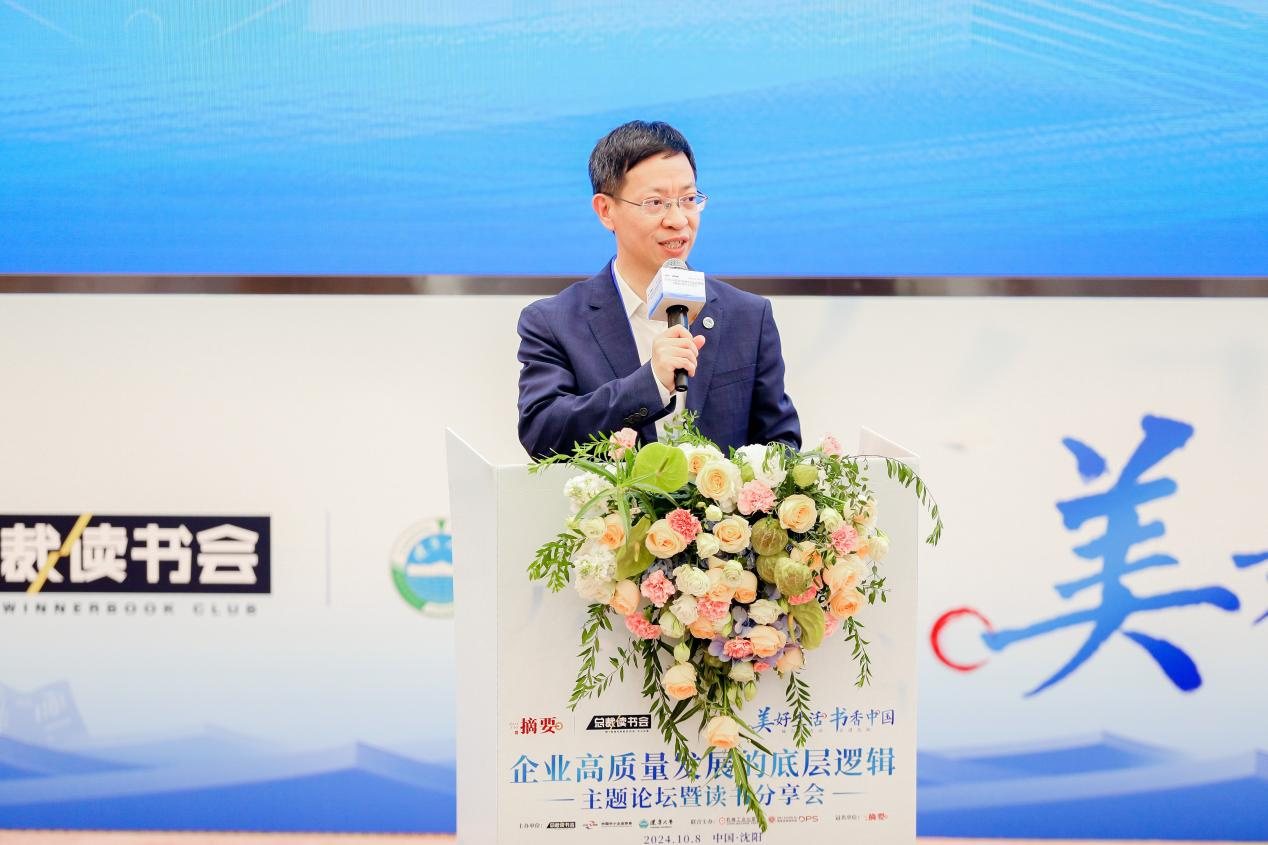
What is the underlying logic of China’s steady economic progress and upward trajectory? According to Yu Miaojie, the most important aspect is to fully implement the new development philosophy of ‘Innovative, Coordinated, Green, Open, and Shared’ development, where innovation is the primary driving force, coordination is an inherent feature, green development is a universal form, openness is the only way forward, and sharing is the ultimate goal. New productive forces represent the direction of advanced productive forces, an important direction for China’s economic development, and a key driver for achieving the ‘Three New and One High’ (new development stage, new development philosophy, new development paradigm, and high-quality development). Therefore, cultivating new productive forces is the underlying logic for achieving high-quality economic development in China in the new era. Yu Miaojie elaborated on how to cultivate new productive forces from three aspects: innovative allocation of production factors, revolutionary breakthroughs in technology, and deep transformation and upgrading of industries. He pointed out that further comprehensively deepening reforms with new productive forces as the starting point can achieve the greatest political goal of Chinese-style modernization.
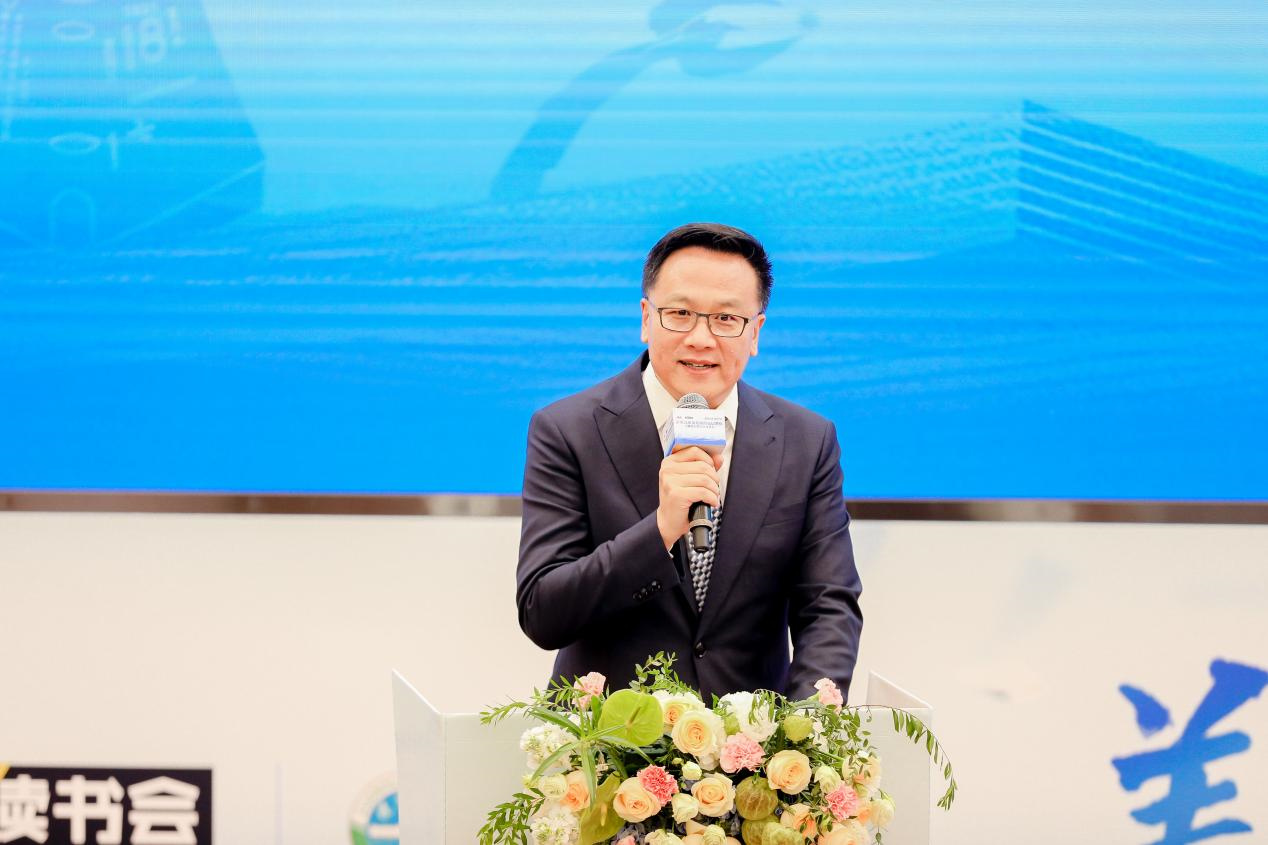
Wang Haishan focused on an in-depth interpretation of quality management in enterprises. In his view, the concept of quality has been continuously expanding, evolving from a single focus on product quality to encompass the broader concept of ‘large quality’, which includes not only product quality but also work quality, service quality, and enterprise management quality. Quality addresses the question of ‘what is better’, which is the underlying logic of technological innovation, business development, and social progress — the underlying logic of high-quality development. Regarding how to promote high-quality development in enterprises, Wang Haishan offered several suggestions: firstly, to focus on the core business, select the right track, go global, and persist with dedication; secondly, to strengthen the infrastructure of quality management, increase investment in standards, and continuously build a moat for product quality innovation; thirdly, to place importance on the construction of quality disciplines and the cultivation of talents, and to enhance their own innovative capabilities. Through concerted efforts in various aspects, the underlying capabilities for high-quality development of enterprises can be strengthened, ultimately enabling enterprises to go global and build a century-old brand.

This year marks the 30th anniversary of China Resources Beer. Over the past three decades, China Resources Beer has not only witnessed the rapid development of China’s economy but also significant changes in China’s beer industry. Growing from being a local brand to being a nationally and even internationally renowned beer enterprise, China Resources Beer’s development journey has been filled with challenges and opportunities.
Fan Shikai reviewed the four stages of high-quality development over the 30-year history of China Resources Beer: the first stage was from 1994 to 2000, known as the ‘Mushroom Strategy, Sailing from Northeast China’; the second stage was from 2001 to 2005, labeled as ‘Along the Rivers and Coasts, Going Nationwide’; the third stage spanned from 2006 to 2016, described as ‘Nation’s Number One, Bravely Scaling New Heights’; and the fourth stage, from 2017 onwards, is titled ‘Entering a New Era’. During this 30-year journey, China Resources Beer has responded to four historical questions posed by both internal and external stakeholders: whether it can produce beer, whether it can build a national brand, whether it can venture into the high-end market, and whether it can expand into the Chinese-liquor industry. Through its keen market insight, exceptional quality, innovative marketing strategies, and remarkable achievements, the company has earned the trust and support of a wide range of consumers.
Looking back on its 30-year history, what has China Resources Beer done right? Fan Shikai shared two points: the first is the innovation strategy. Innovation and transformation have been constant themes in the development of China Resources Beer. From a broader perspective, the company has seized significant growth opportunities in the industry and made the right moves at different stages. The second is the market-oriented strategy. Everything from meeting consumer demands to deep insight, exploration, innovation, and leadership, as well as the entire service system, management system, and channel network construction, has been tightly focused on the market. Especially in terms of organizational capability building, team capability enhancement, and corporate culture shaping, the company has adopted a market-based mechanism, which has been the key to its success.
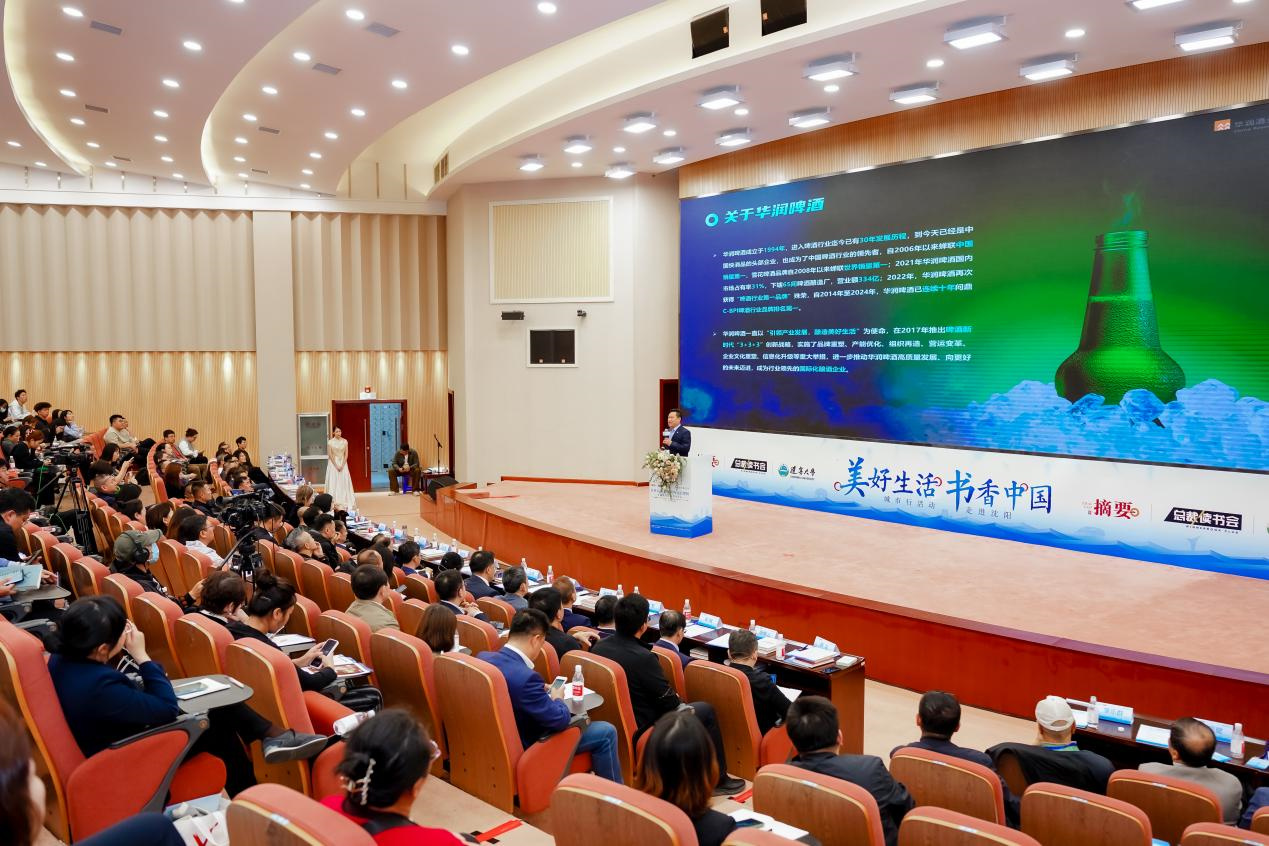
Today, we are in an era of great change, where China’s economy is shifting from high-speed growth to a new stage of high-quality development. In this context, how should businesses seize opportunities and address challenges? What is the underlying logic of high-quality development? What are the key forces driving high-quality development? With these questions, this episode of ‘CEO Book Club’ explores answers through two books on management, The Power of Management and The U-Shaped Curve.
The Power of Management is written by Hu Saixiong for business leaders who wish to achieve commercial success by improving management effectiveness. It serves as a guide for corporate management practices. This book uses numerous vivid case studies to deconstruct the systematic and underlying logic of corporate management. It attempts to explore solutions to the complex and difficult problems encountered in corporate management practices, focusing on the essence of these issues. It is a work full of management wisdom.
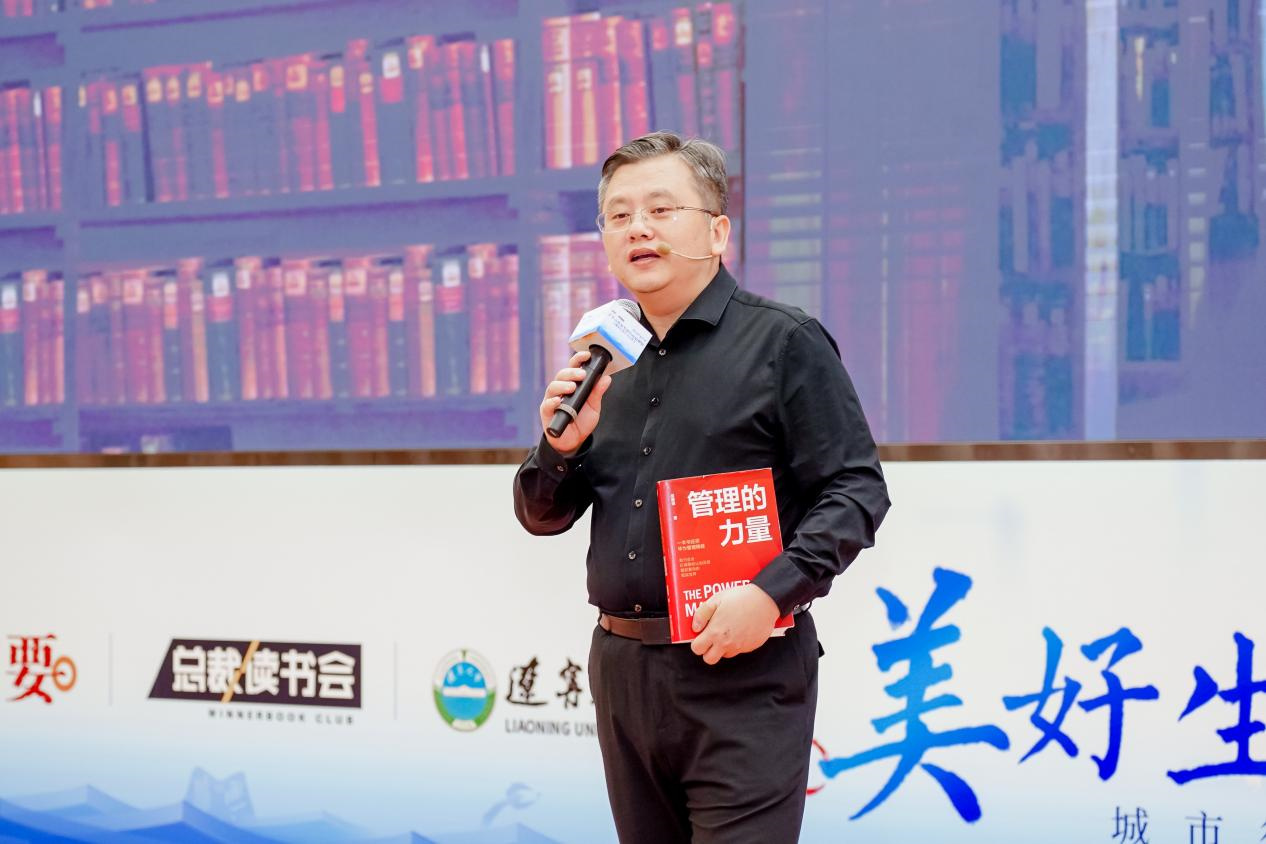
Why recommend The Power of Management? As the leading reader Tang Wen sees it, the word ‘management’ is one of the most frequently and indiscriminately used terms in the business community. However, most people’s understanding of management is fragmented and based on personal experiences, which is quite different from a well-established, dynamic management framework that has been validated by large enterprises and the market. In this book, the author, drawing on nearly 20 years of management experience at Huawei, proposes a systematic model for corporate management — the ‘TD-ICE Management Model’, which stands for Target Drifting, Dynamic Decision-making, Organizational Evolution, Aggressive Culture, and Information Negentropy. Tang Wen highlights this model, suggesting that the significance of reading this book is akin to buying a Windows installation disc in the past. Just as one needs to install the Windows operating system on a computer before installing various applications, in a business, the ‘TD-ICE Management Model’ is like the business’s operating system. Only by installing it can one proceed with various business operations.
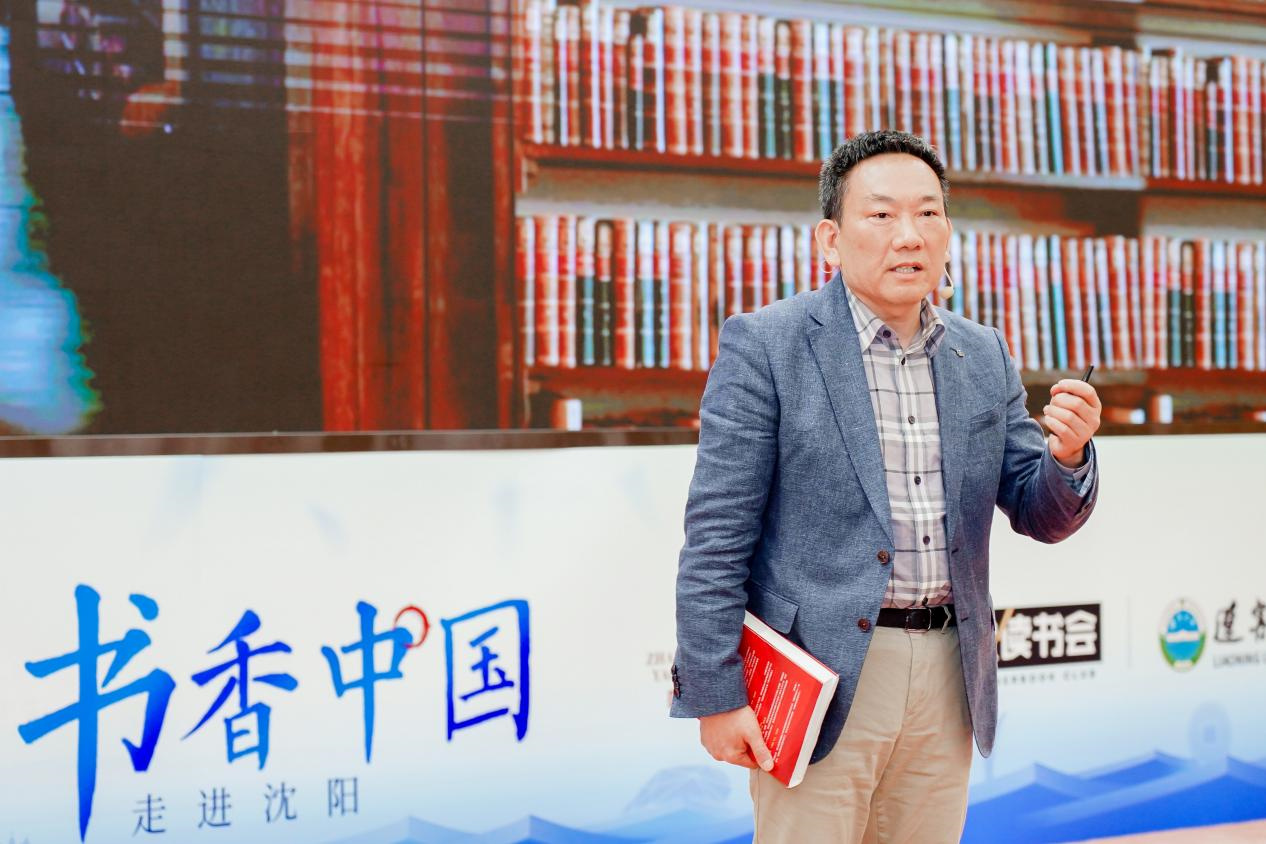
Regarding the writing motivation behind this book, Hu Saixiong mentioned in the introduction that one of his profound observations in interactions with companies is that many business managers are extremely busy yet spend considerable time learning various management methodologies. However, the content they acquire is often like scattered ‘pearls’, and they lack the time to string these pearls into a ‘necklace’. As a result, it is difficult for them to apply what they have learned in their actual work and to use their knowledge effectively. He hopes this book can provide business managers with a systematic model for management, enabling them to grasp information more comprehensively, uncover patterns within chaos, and understand the essential connections between things, thus helping managers address specific issues and improve the effectiveness of their management.
The U-Shaped Curve is authored by Dr. Wang Haishan, who, based on years of experience in quality cognition and management as well as entrepreneurial endeavors, summarizes the quality management practices of domestic and international enterprises. Through numerous corporate case studies and data research, it proposes that long-termism and quality management are key factors determining the sustainable development and longevity of a business.
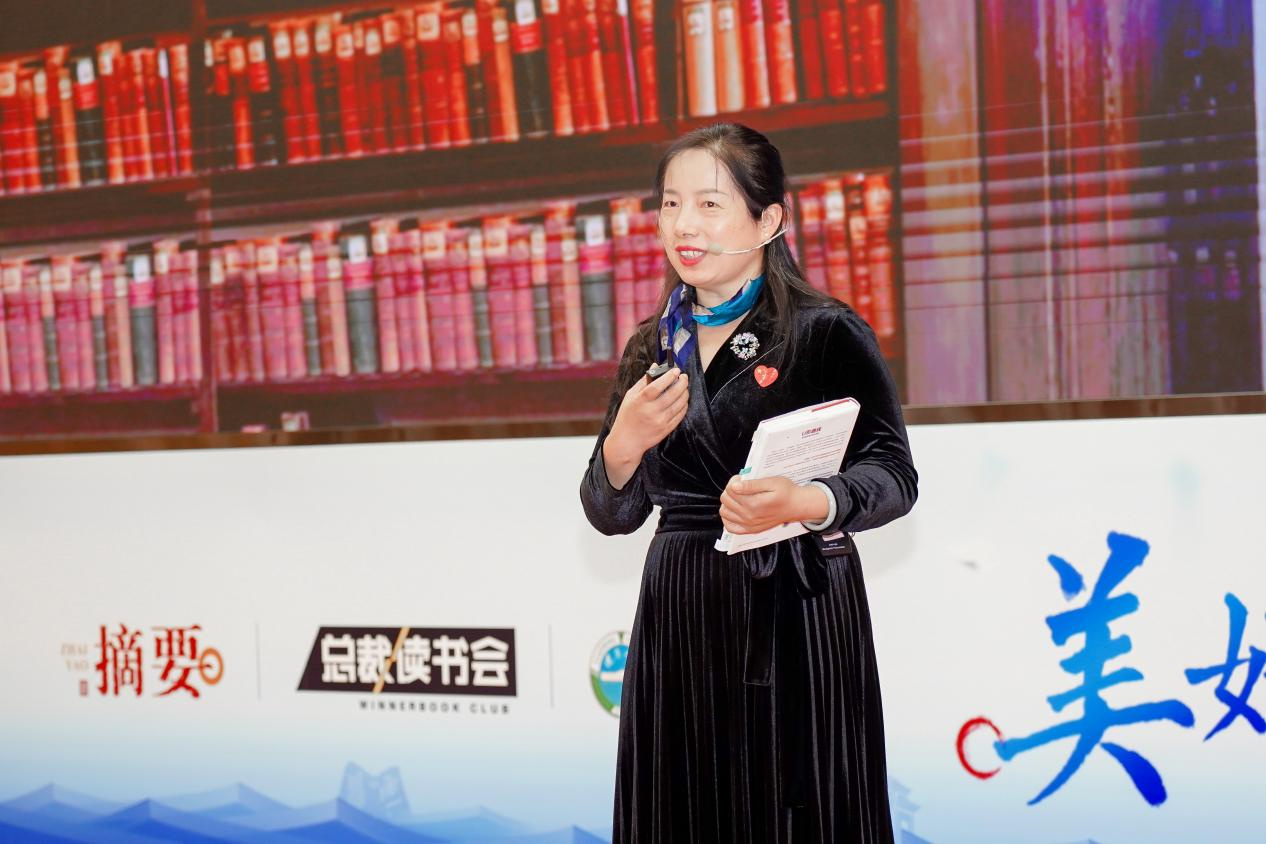
Jiang Yan, a member of the National Committee of the Chinese People’s Political Consultative Conference, a member of the Standing Committee of the Liaoning Provincial People’s Congress, and the Deputy Chief Engineer and senior professor at Shengu Group Co., Ltd., believes that the U-shaped curve of quality management illustrates that the path to high-quality development for enterprises is difficult, especially in the initial stages, which can be painful. Just as there is no transformative rebirth without undergoing a torturous trial, there is no successful ‘phoenix rising from the ashes’ without the willingness to face risks and challenges. However, it is precisely through these setbacks and suffering that one witnesses the hardships and difficulties in the journey of quality management development. After experiencing a downward phase, enterprises will enter a phase of healthy development, and their financial performance and capacity for sustainable development will far outstrip those of other companies.
During the event, the guests not only shared their thoughts and insights but also engaged in lively on-site interactions and discussions. Their profound understanding of the underlying logic of high-quality development, as well as their summarization of experiences and case analyses during the process of high-quality development, broadened horizons and provided valuable inspiration and references.

During the roundtable forum segment, guests including Yu Miaojie, Wang Haishan, Fan Shikai, Xu Baoping (the rotating president of the Liaoning Business Association, Chairman of Shilong International Group, and Executive Vice President of the Shenyang Overseas Chinese Chamber of Commerce), as well as Zhao Feng (the Vice President of Junsheng Investment and an entrepreneurship mentor at Peking University’s Entrepreneurship Training Camp), engaged in lively discussions on various topics. These included the underlying logic of high-quality development for enterprises, the lessons and insights from China Resources Beer’s 30 years of development, the measures and achievements of Liaoning University in cultivating innovative talent and promoting technological innovation, and how to manage the conflict between short-term and long-term interests in the process of high-quality development for enterprises.
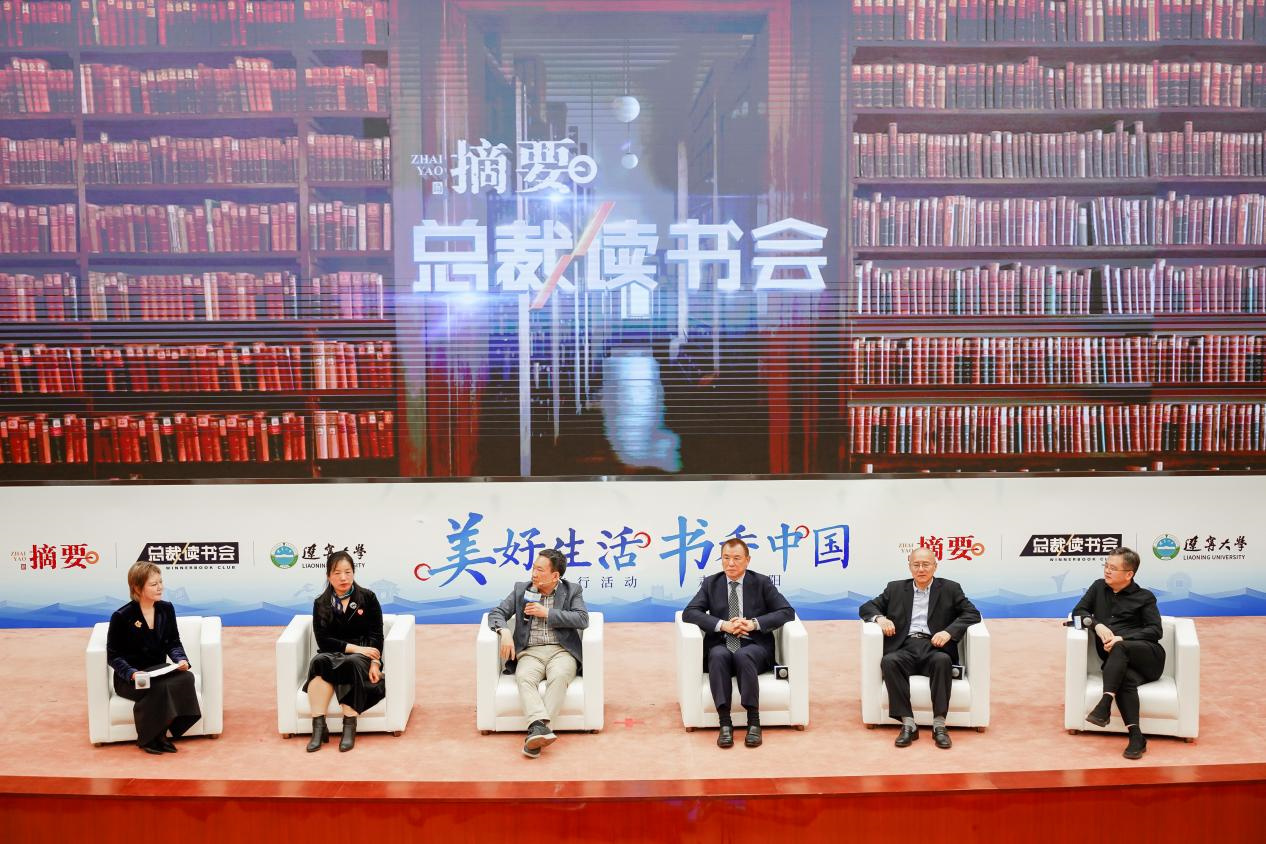
During the book club session, guests including Jiang Yan, Hu Saixiong, Tang Wen, Zhang Jian (former Vice President of Cisco China, and former general manager of government business and regional business for HP China), and Sun Qi (partner at China Venture Capital Co., Ltd.) delved into in-depth discussions on several aspects. These discussions covered the creative background, learning experiences, and reading inspirations of the management books The Power of Management and The U-Shaped Curve. They also explored the role of digital transformation in driving high-quality enterprise development, how management should innovate to adapt to the new economic environment, and how enterprises should deploy resources in technological innovation and product development to maintain competitiveness.
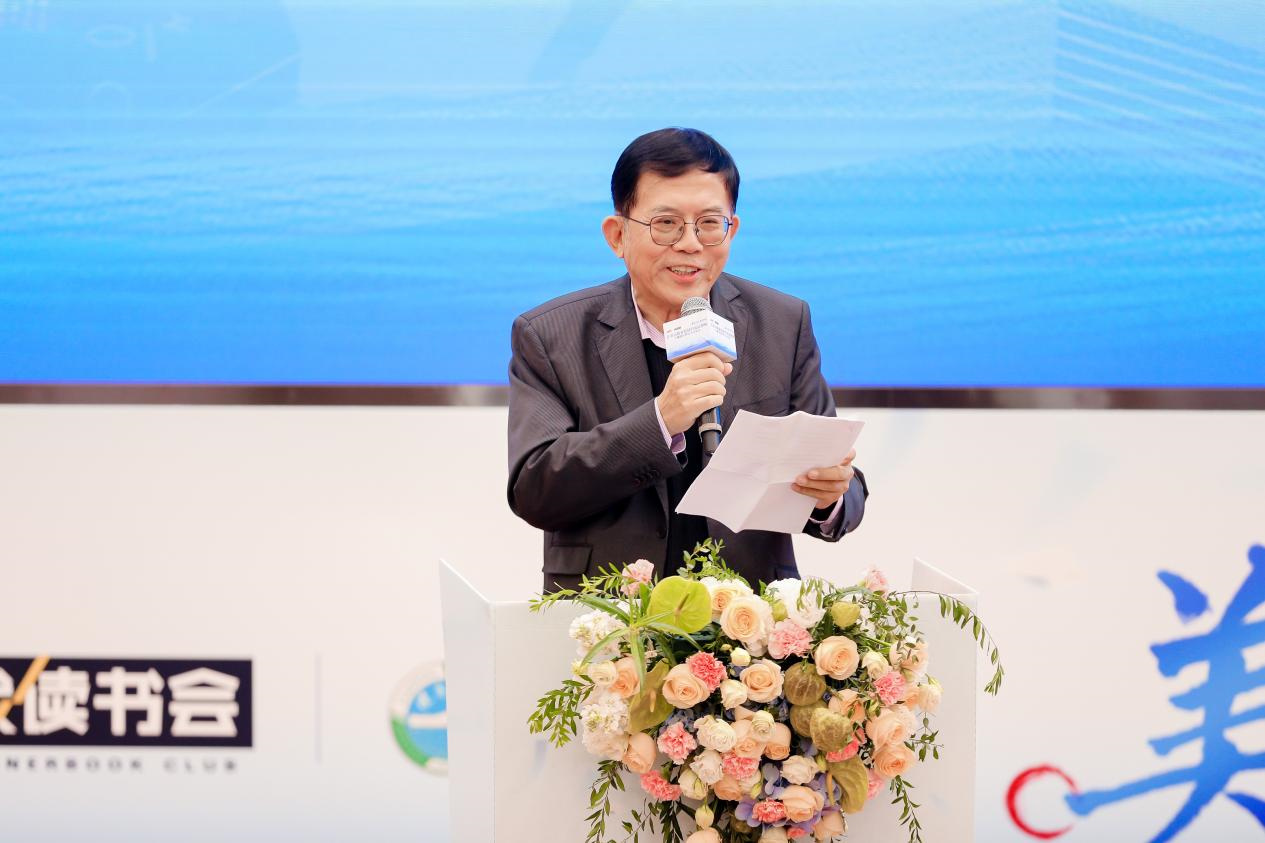
Zhang Yu, the executive vice chairman of the National Leader Reader Alliance of the President's Reading Club and the chief consultant of the ‘Presidents’ Reading Club’ program, delivered a brilliant speech on behalf of the organizers. Shenyang is the tenth Chinese city of literary fame in the ‘Beautiful Life, Literary China’ city tour, and Liaoning University is the sixth Chinese literary elite institution in this tour, following the Peking University HSBC Business School, Southern University of Science and Technology, China University of Science and Technology, Sichuan University, and Wuhan University. Shenyang is also the concluding city of the first season of the ‘Beautiful Life, Literary China’ city tour. At this moment, he noted, we are jointly discussing the underlying logic of high-quality enterprise development, which holds unique practical and historical significance.
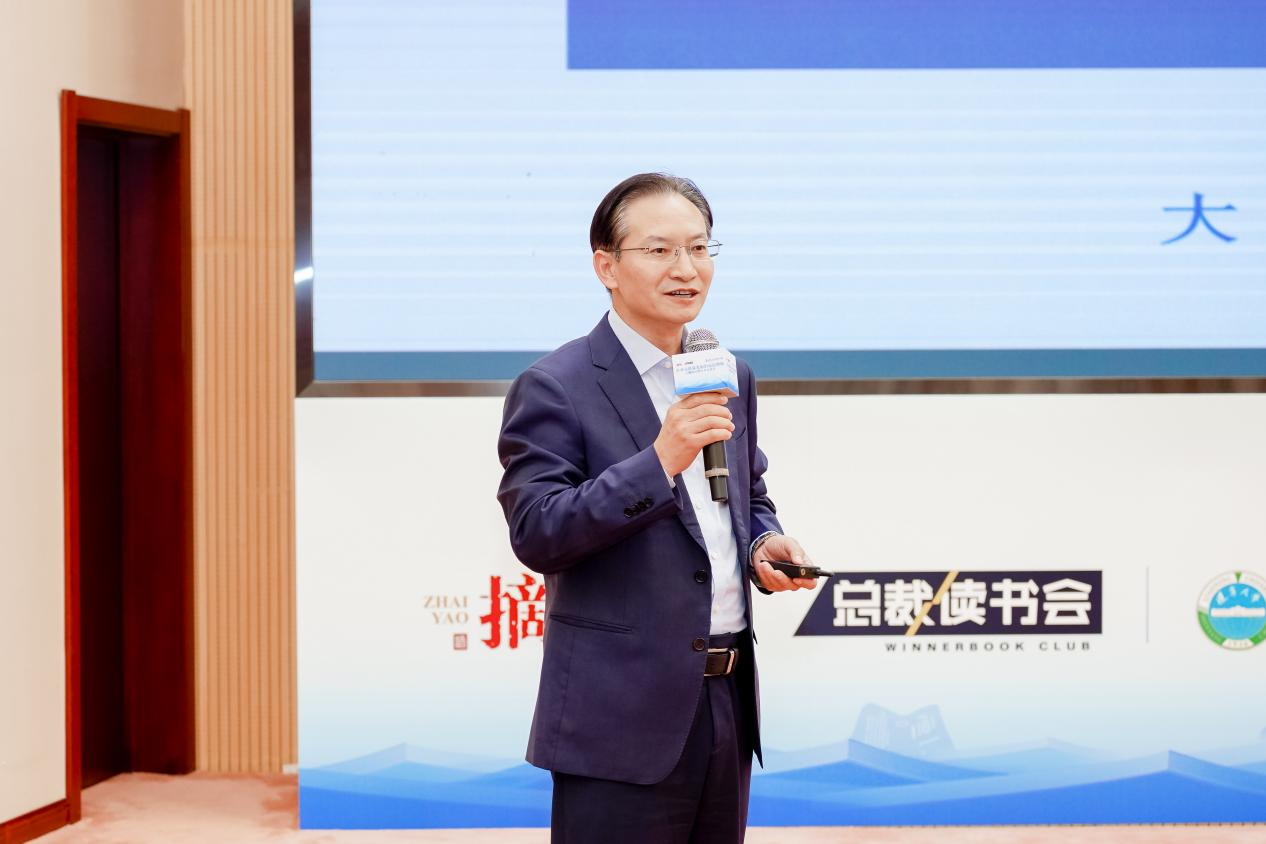
During this event, Kang Jiyun, the director of the Training Center of the China Association for Small and Medium Enterprises, provided an interpretation on the theme ‘Vigorously Creating Bookish Enterprises to Support the Growth of Private Economy’. He shared his insights on the purpose and significance of building bookish enterprises, the principles and requirements for constructing such enterprises, the enterprise reading cloud platform, and the efforts to create bookish enterprises. He hoped that everyone would work together to contribute to building bookish enterprises and a bookish China.
Liu Shiying, vice president of the China Enterprise Reform and Development Research Association and founder of the ‘Presidents’ Reading Club’, attended the event. Chen Xiaoyu, a famous CCTV host and the public image ambassador of the ‘Presidents’ Reading Club’, hosted the event. Guests attending the event also included Zheng Gang, deputy general manager of the marketing center of Jinsha Liquor; Li Xinghao, director of the marketing department of Jinsha Liquor; Wang Xu, general manager of the Shenyang division of China Resources Snow Breweries; He Xin, director of the new product incubation department of the sales business development center of China Resources Snow Breweries; Zhai Donghao, sales manager of the new product incubation department for the liquor of China Resources Snow Breweries; Pan Jie, deputy chairman of the National Leader Reader Alliance of the ‘Presidents’ Reading Club’ and executive director of Zhihui Hengyuan; Wang Yulong, head of the Liaoning branch of the Association for Small and Medium Enterprises; Li Yingjian, president of the Northeast Alumni Association of the National Development Institute at Peking University and former member of the 8th, 9th, and 10th Liaoning Provincial Committee of the Chinese People’s Political Consultative Conference; Zhaolequn, president of the Shenyang Association of the Manchu and president of the Shenyang Alumni Association of Liaoning University; Zhang Xiaohong, executive vice president of the China Financial Research Institute of Liaoning University and deputy secretary-general of the Liaoning University Alumni Association, vice president of the Shenyang Alumni Association of Liaoning University; Yan Dong, executive secretary of the Shenyang Alumni Association of Liaoning University, outstanding young lawyer, and representative of the people’s congress; Zhang Chi, executive deputy director of the management doctorate project department of the National Development Institute at Peking University. They were among more than 300 industry leaders, experts, scholars, and university faculty and students attending the event.
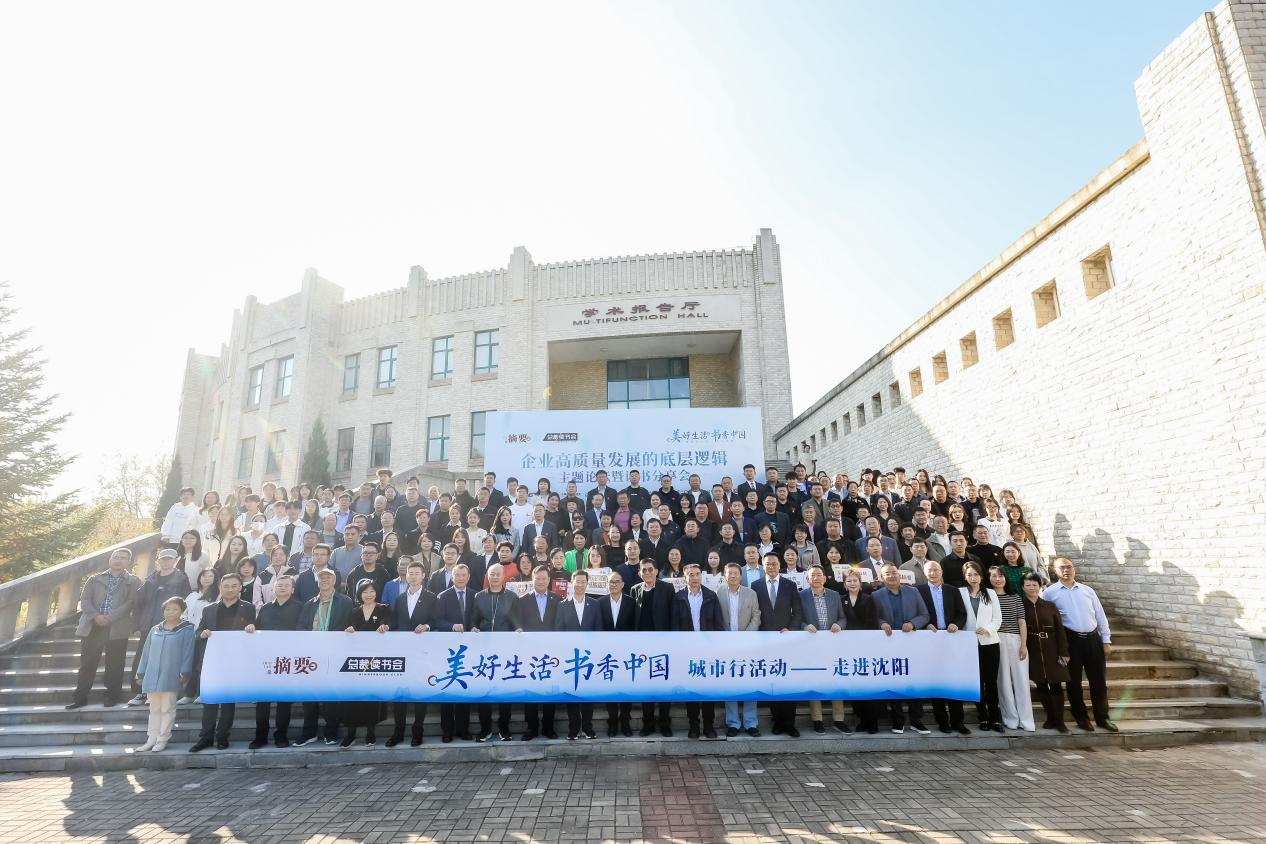
The event was sponsored by Zhai Yao and co-organized by the ‘Presidents’ Reading Club’, the China Association for Small and Medium Enterprises, and Liaoning University. It was also jointly organized by the China Machine Press and the Peking University National Development Institute Doctoral Forum. Support was provided by the Liaoning Provincial Liaoshang General Association, the Liaoning Provincial Young Entrepreneurs Association, the Shenyang Committee of the China Democratic Promotion Association, the Liaoning Widelink Co., Ltd., and the Shenyang World Trade Center Co., Ltd., Kunlun Mountain Mineral Water also provided in-kind sponsorship. More than 400,000 people watched the live broadcast through Weibo, Douyin, and video platforms.